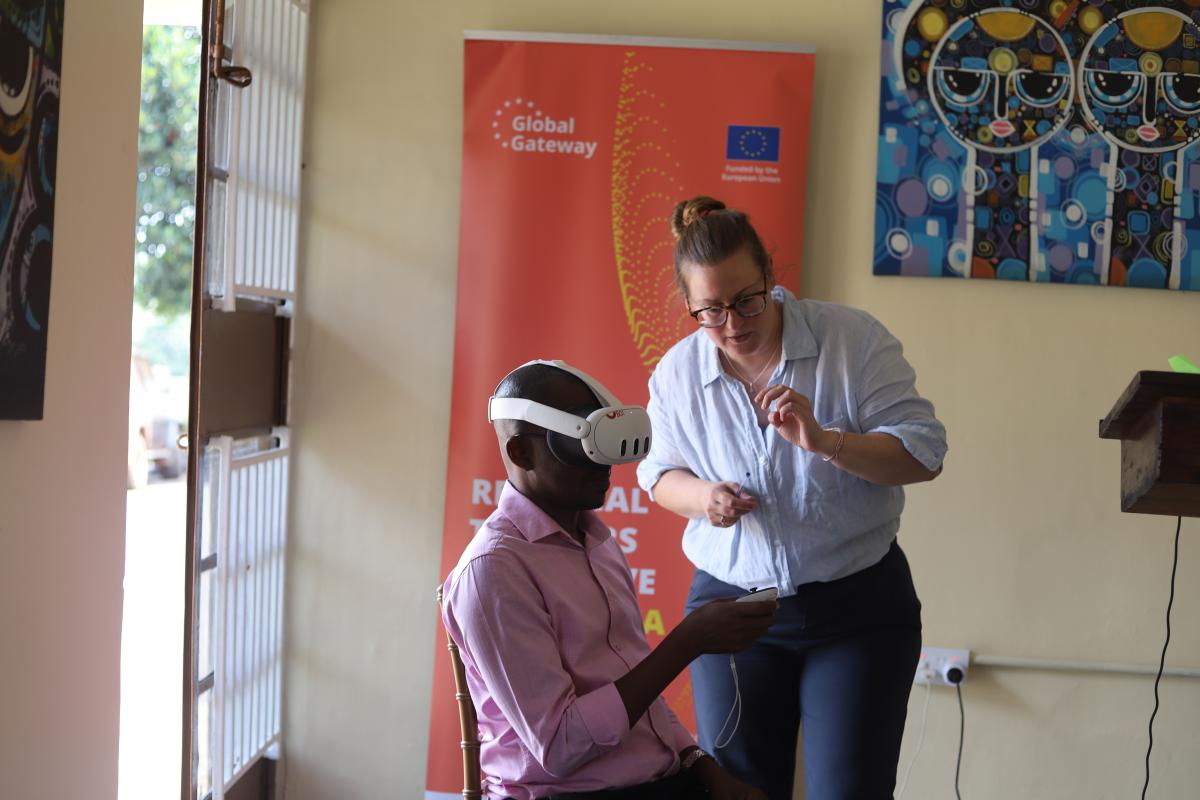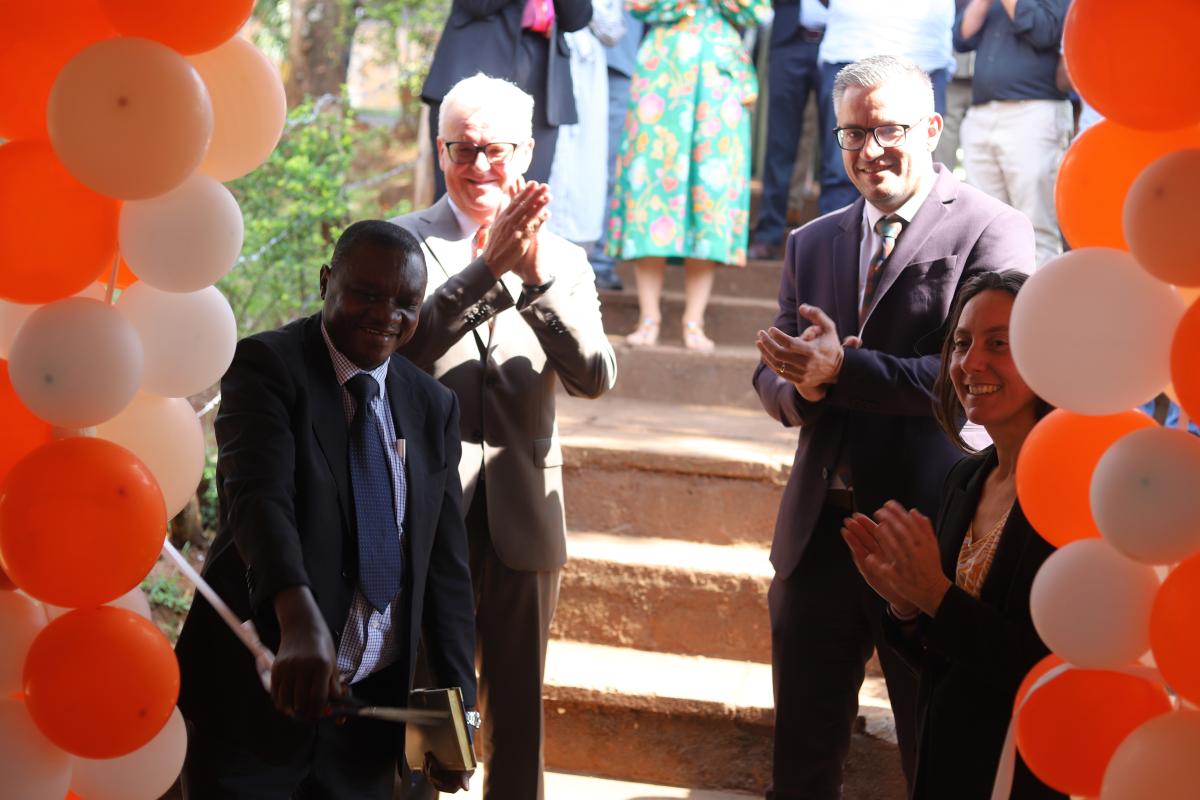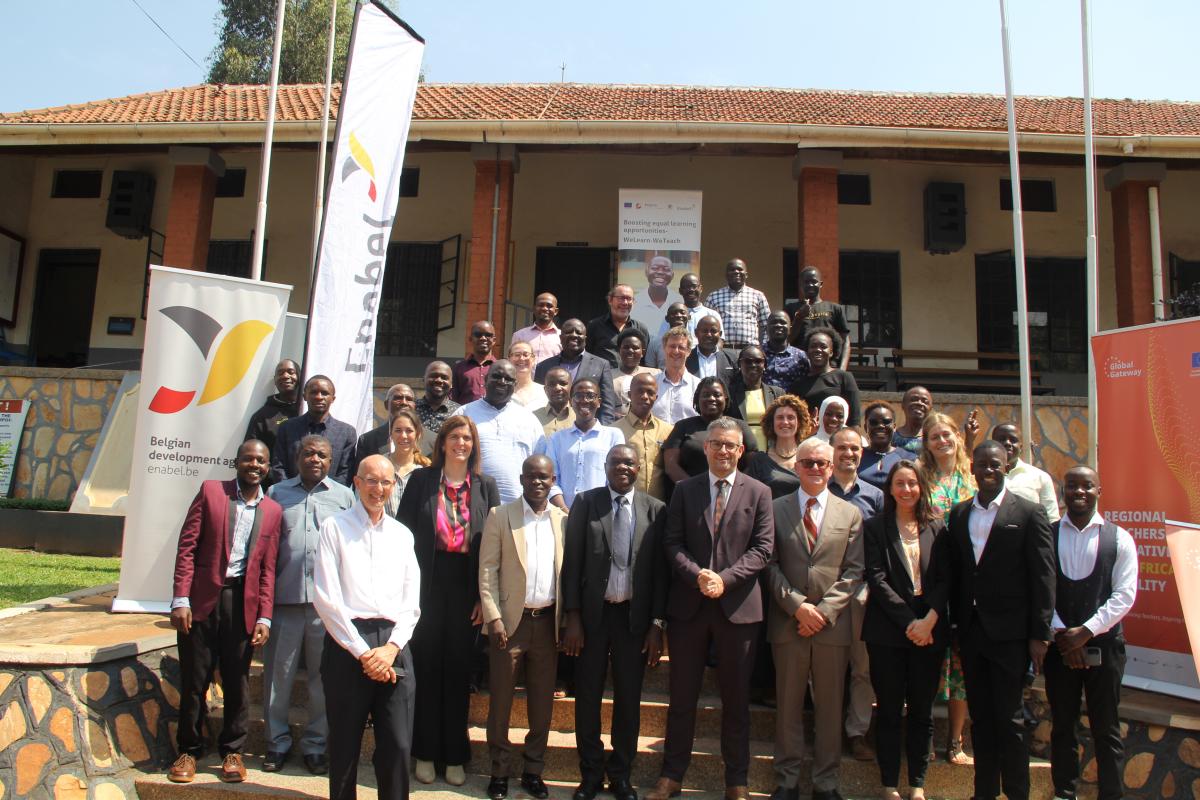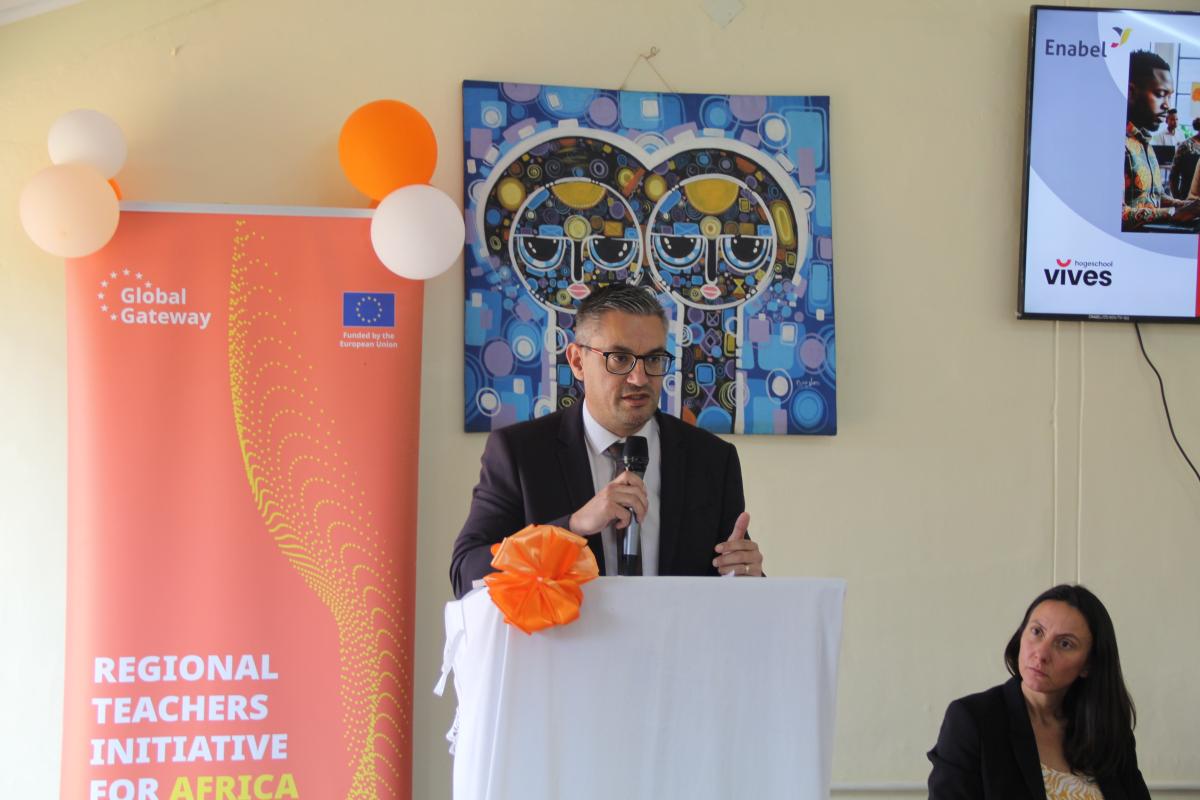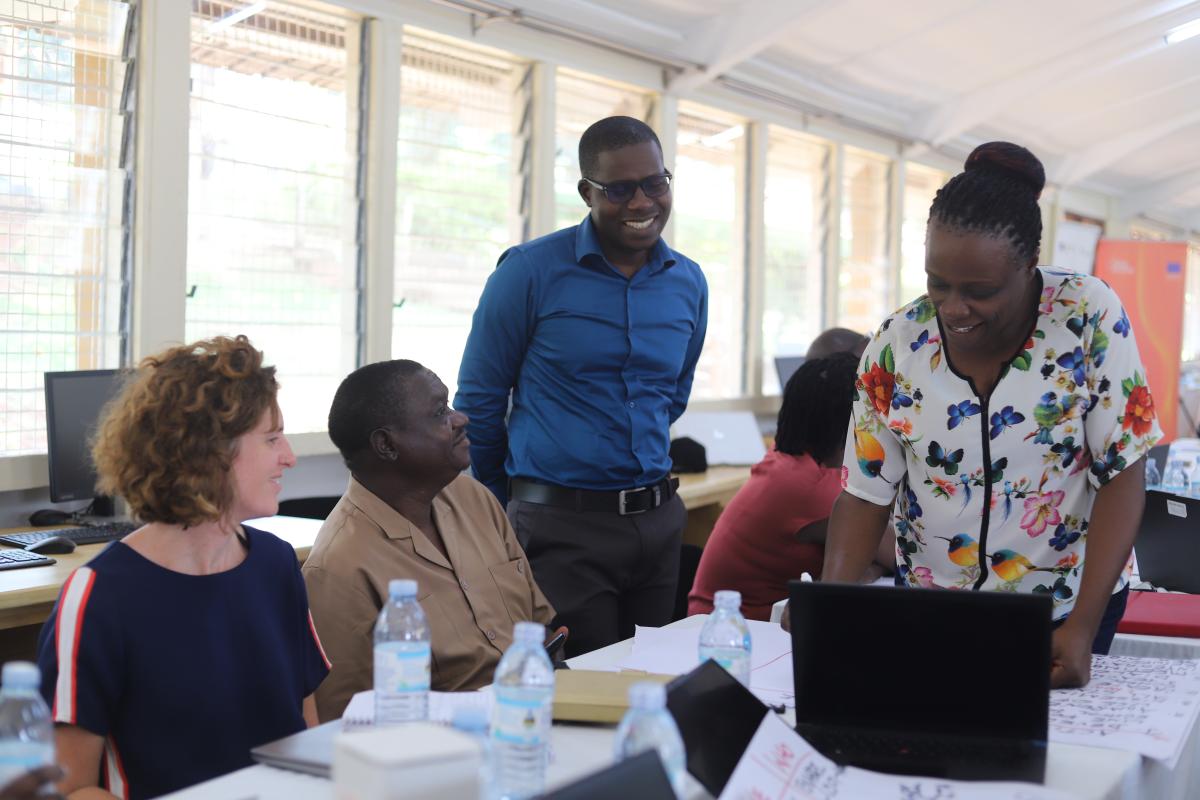Uganda: Shaping the future of education in East Africa with Generative AI
In early September 2025, the Nile Spark Innovation Hub in Jinja-Uganda, newly launched as a space dedicated to creativity, technology, and collaboration, became the stage for the Generative AI in Education Bootcamp. The hub’s opening marked a milestone for the region, providing a modern environment where educators, innovators, and policymakers can co-create solutions for the future of learning.
Nicolas Oebel, Enabel in Uganda Country Director, explained, “We are establishing eight new hubs, including this one, to address three key challenges: limited digital competencies among educators, restricted devices and connectivity, and the limitations of school computer labs.”
Over four days, participants from Uganda, Tanzania, and Rwanda guided by facilitators from Vives University of Applied Sciences in Belgium, explored how Generative AI (GenAI) can act as a co-pilot in education, enriching teaching and learning without replacing the role of teachers. At the heart of it, the bootcamp emphasised an important message: AI should empower teachers, not substitute them. By simplifying complex information, personalising lessons, and supporting students with diverse learning needs, GenAI is opening new possibilities for inclusive, engaging, and future-ready education.
During the training, participants engaged in hands-on sessions that combined technical orientation with practical applications. Educators learned how GenAI can support lesson planning, assessment preparation, and differentiated learning. Equally important, discussions highlighted the ethical and environmental implications of AI, ensuring that the technology is used responsibly.
Reflecting on this, the Head of Cooperation at the Belgian Embassy shared, “This bootcamp is more than a technological milestone; it’s about empowering teachers to create inclusive, learner-centred environments. Generative AI can act as a co-pilot for educators, helping design personalised and creative content while reducing workload. Together, we are shaping a future where every teacher is equipped with the tools to inspire, and every learner is empowered to thrive.”
The bootcamp also fostered meaningful cross-country collaboration. Representatives from Rwanda, Tanzania, and Uganda exchanged insights on challenges and opportunities for digital innovation in their education systems. This dialogue will feed into a joint proposal and activity plan for 2026, ensuring that the lessons from Jinja continue to ripple across the region.
Juliette Rubenstein, Head of the European Union Delegation to Uganda, highlighted the bigger picture, saying, “Within the framework of the EU-funded Regional Teachers Initiative for Africa (RTIA) and the Belgium-funded Teach2Empower programme are bold commitments to educational transformation. Generative AI holds immense potential to reduce administrative burdens, allowing educators to focus on empathy-driven, student-centered instruction. Let us seize this opportunity to build bridges across borders and ensure every teacher is empowered and every learner inspired.”
For the participants, many of whom are teachers and education officials, the experience was transformative. Beyond understanding the technical side of GenAI, they left with renewed confidence to experiment, adapt, and critically apply AI in their classrooms and institutions. Florence Moriuku, an English teacher in Uganda, noted, “I plan to use AI tools to carry out assessment on learners, specifically for formative assessment in teaching grammar, and make my lessons more interactive.”
From Uganda’s perspective, the bootcamp aligned with national priorities. Mr. Kyaka, representing the Ministry of Education and Sports, affirmed, “The Government of Uganda is committed to transforming education through innovation and technology. This bootcamp introduces Generative AI as a powerful tool to support our teachers by enabling personalised and inclusive content creation. The Ministry is fully committed to ensuring these benefits reach every classroom in Uganda.”
The 2025 GenAI Bootcamp was not just about technology. It was about people, collaboration, and a shared vision of equipping Africa’s youth with the skills they need for the future. By blending empathy, inspiration, and innovation, educators are proving that AI can help them do what they do best: teach, inspire, and empower the next generation.
Latest news from this project
No news
